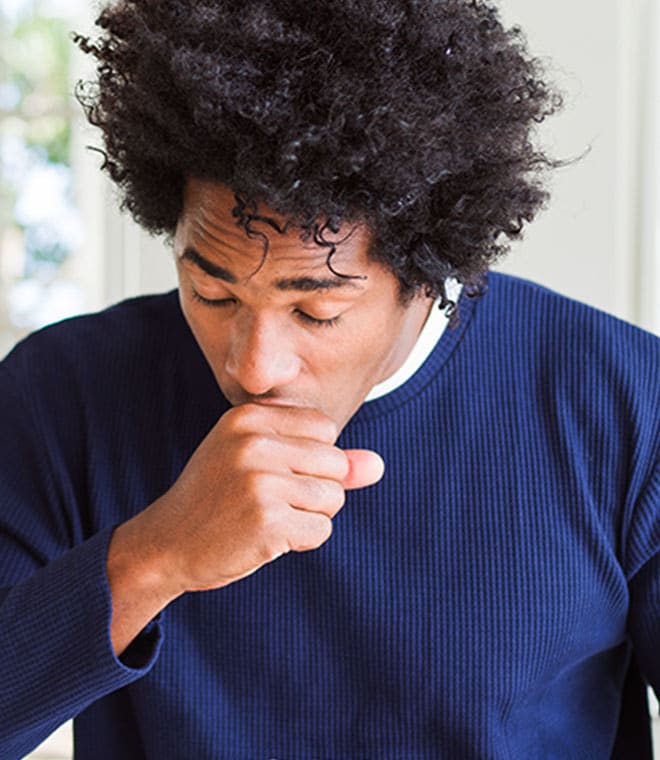Health
How to get tested for food allergies?
By Jenilee Matz, MPH Mar 17, 2022 • 7 min
What is a food allergy?
Food allergies are common, affecting nearly 11% of adults and 8% of children in the U.S., according to recent survey studies.
In a food allergy, the immune system overreacts to a normally harmless protein in a food and sets off an allergic response. Food allergy symptoms can appear at any age and can develop for foods you have eaten before without problems, or may change in severity over time.
What are the symptoms of food allergy
If you come into contact with a food you are allergic to, you may experience:
- Hives or a rash
- Shortness of breath or wheezing
- Repetitive cough
- Tight, hoarse throat
- Trouble swallowing
- Swelling of the tongue, affecting the ability to talk or breathe
- Vomiting or stomach cramps
- Pale or blue coloring of skin
- Dizziness or feeling faint
- Anaphylaxis—a potentially life-threatening reaction that can impair breathing and send the body into shock
Symptoms of a food allergy vary and can range from mild to life-threatening. If you think you or your child may have a food allergy, you may need to see an allergist for food-allergy testing.
How to get tested for food allergies?
At your appointment, your allergist will ask about your health history and symptoms. They'll likely want to know the food you ate, how much of it you ate, how long it took for symptoms to start, what specific symptoms you had, and how long symptoms lasted. Then your allergist will decide which tests to perform to determine if you are or aren't allergic to a specific food.
Skin tests
In a scratch or skin prick test, your healthcare provider will place a very small amount of liquid food extract onto the skin of your back or forearm. If you're being tested for multiple possible allergens, they'll place one drop of each food. Then your provider will gently prick the area of the skin that contains the liquid with a needle. This allows a small amount of food to get beneath your skin. If a red, raised bump that looks like a mosquito bite appears after 15–30 minutes, it likely means you're allergic to that food. You may also have your skin pricked with a liquid that doesn't contain any allergens to serve as a control.
Blood tests
When you have an allergy, your immune system overreacts to the allergen and produces immunoglobulin E (IgE) antibodies. Food allergy blood tests measure the amount of IgE antibodies in your blood to specific foods. For the test, your healthcare provider will take a small sample of blood and send it to a laboratory for analysis. The blood test is very quick, but it can take one to two weeks to receive results. If the blood test is positive for IgE antibodies to a certain food, you may be allergic to that food. However, the level of IgE antibodies found for a specific food does not necessarily predict how severe your reaction will be if you eat that food. Blood tests for allergies without a thorough history by a qualified healthcare provider are not recommended.
Elimination diet
Elimination diets are similar to oral food challenges and require keeping a written track of all food you eat and medication you take, along with your symptoms for the day. In the elimination diet, the suspect food(s) are avoided for one to two weeks. If the allergic symptoms decrease during that period and flare up when the food is eaten again, it may be an allergy. Determining which food to avoid, and for how long, and when to eat the food again, if ever, should be decided under the direction of a qualified healthcare provider. Your provider may want to confirm these diet tests with a challenge test. Food allergy testing is a very important step in diagnosing food allergies.
Oral food challenge tests
Positive results of skin tests or IgE blood tests likely mean you have an allergy, but results aren't always conclusive. In this case, your allergist may recommend an oral food challenge test. They may also suggest a food challenge for other reasons, such as to figure out if a child has outgrown a food allergy. The challenge involves eating or drinking a small serving of the food in increasing amounts over time to see if an allergic response occurs. Or you may receive the food in capsule or injection form. The oral food challenge is done in a doctor's office or hospital under a healthcare provider's supervision so you can receive treatment right away if you have a reaction.
At home allergy testing
Suspected food allergies should always be diagnosed by a qualified health care provider, such as a board-certified allergist. There are several at-home food allergy test kits on the market. However, these tests claim to identify food sensitivities, not food allergies so self-diagnosis or self-treatment based on these tests is not recommended. These types of home test kits often measure IgG antibodies to foods, which show what the body has been exposed to but not how your body reacted. IgG antibody testing has never been scientifically proven to diagnose food allergies or sensitivities and this type of testing is not regulated by the Food and Drug Administration.
Reliable tests measure for IgE antibodies in the blood which are released by the immune system when you are exposed to an allergy-causing substance, such as certain foods. In fact, some of these home tests ask you to send in a hair sample instead of a blood sample but hair does not contain IgE antibodies so these tests cannot give accurate information about a food allergy.
Proper diagnosis of food allergies is very important. If you're diagnosed with a food allergy, you'll need to avoid eating that food. Work closely with your allergist to manage your allergies, and make sure you understand what to do in case you accidently consume a food to which you're allergic.
Clinically reviewed and updated by Nancy Kupka, PhD, RN, March 2022.
Sources:
1. https://jamanetwork.com/journals/jamanetworkopen/fullarticle/2720064
2. https://www.ncbi.nlm.nih.gov/pubmed/30455345
3. https://acaai.org/allergies/types/food-allergies/testing
4. https://medlineplus.gov/lab-tests/food-allergy-testing/
5. https://acaai.org/allergies/types/food-allergies/diagnosis
8. https://www.aaaai.org/conditions-and-treatments/library/allergy-library/IgG-food-test
9. https://www.foodallergy.org/resources/facts-and-statistics



